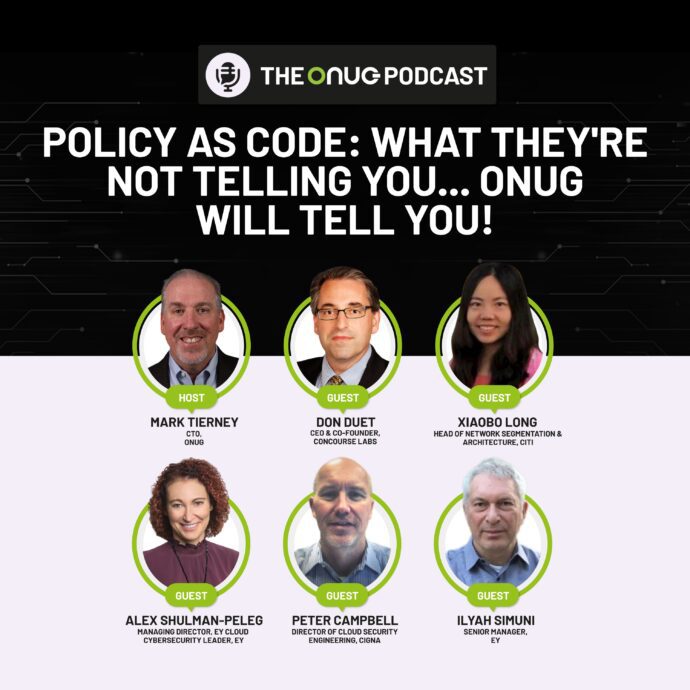
Policy as Code: What They’re Not Telling You…ONUG Will Tell You!
Mark meets with several leaders from ONUG’s Policy as Code (PaC) working group to unpack the gaps in today’s PaC thinking. You will learn:
- How can PaC support your Zero Trust, data protection strategies?
- Why it’s important that Policy as Code can scale in your Enterprise.
- Why you should be thinking about Policy as Code beyond simple implementation practices.





